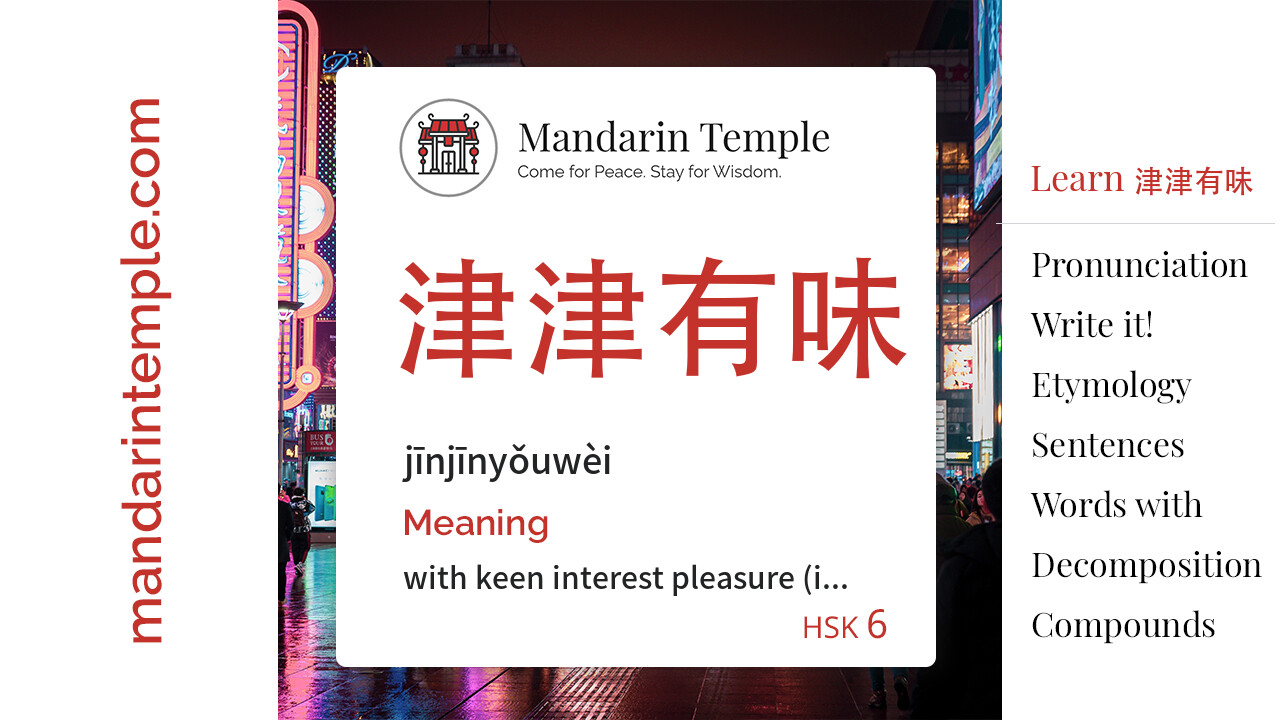Learn the Chinese word 津津有味 jīnjīnyǒuwèi in 7 easy steps:
Write it!
Practice your Chinese writing skills and learn precisely where and when to draw every stroke of the
Chinese word 津津有味 jīnjīnyǒuwèi .
Press the Show Strokes button to see the strokes and their order and hit Start Drawing when you are
ready to practice.
Example sentences using 津津有味 jīnjīnyǒuwèi
Broaden your vocabulary by interacting with 4 audio-assisted sentences using the Chinese word 津津有味 jīnjīnyǒuwèi in different contexts.
我们 wǒmen 看 kān 她 tā 津津有味 jīnjīnyǒuwèi 地 de 嚼 jué 了 le 两 liǎng 包 Bāo 花生米 huā shēng mǐ .
We watched her munch through two packets of peanuts.
他 tā 翻 fān 到 dào 里面 lǐ miàn 的 de 一 yī 篇 piān 论文 lùnwén ,津津有味 jīnjīnyǒuwèi 地 de 读 dòu 起来 qǐlai .
He turned to an editorial and began reading it with interest.
Recommended Books for Learning Mandarin Chinese
AMAZON BOOKSHELF
AMAZON BOOKSHELF
